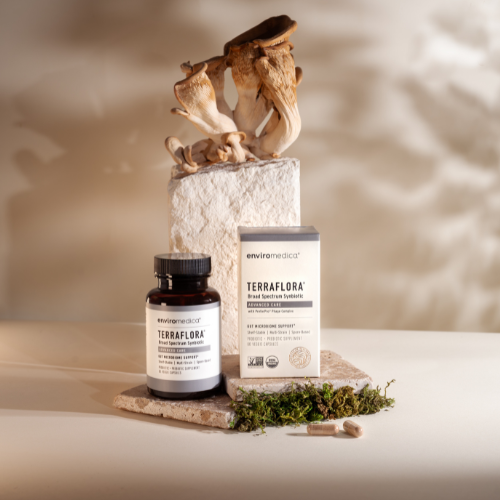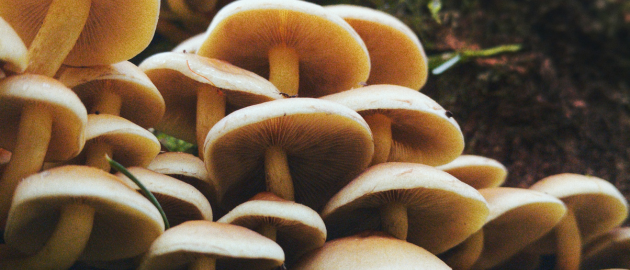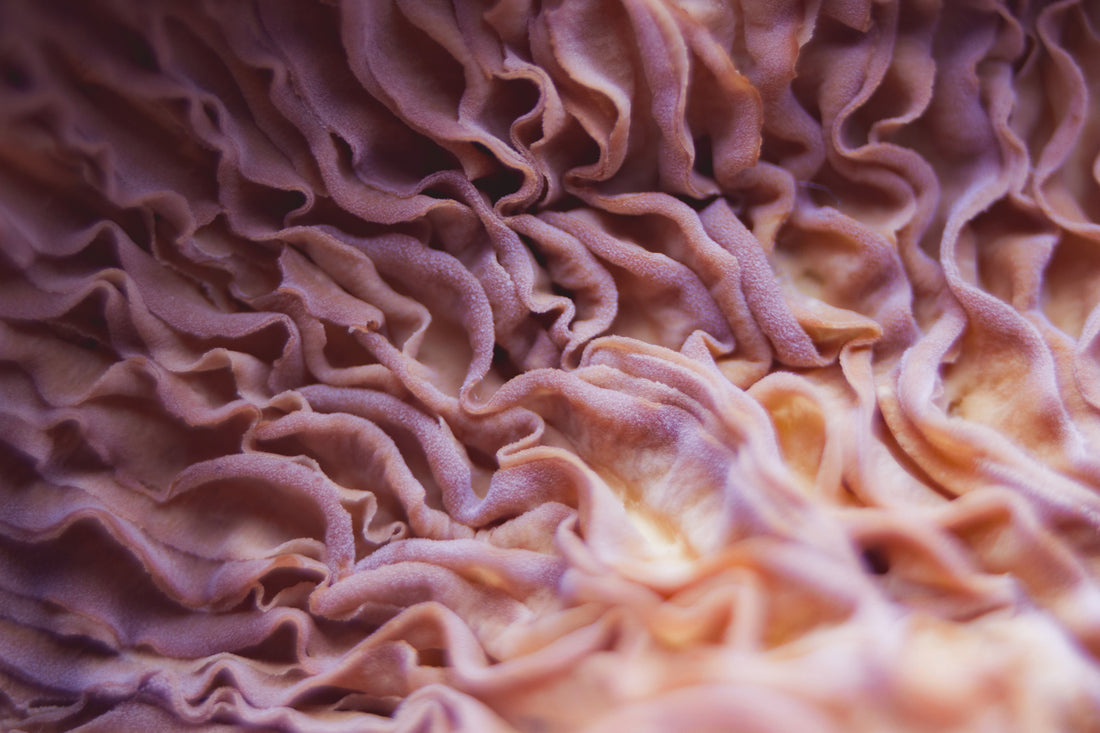Is your microbiome the key to mental health?
Anxiety and depression are highly prevalent now in our culture. According to the Anxiety and Depression Association of America (ADAA), anxiety disorders are the most common mental illness in the U.S., affecting 40 million adults in the United States age 18 and older, or 18% of the population.1 As researchers continue to evaluate possible causes, they are now finding a strong connection between the bacteria in our gut, and our mental health.
Differences in gut bacteria associated with depression
According to a recent study in Brain Behavior and Immunology, significant differences in the microbiome were identified between healthy individuals and patients with major depressive disorder (MDD). The severity of the depression was also related to the amount of firmicutes bacteria present in the gut. People with MDD showed an increase in bacteroidetes, proteobacteria, and actinobacteria, with decreased firmicutes, indicating altered gut bacteria in those with MDD versus a control group.2
Humans serve as a host to evolving microbes in highly plethoric communities. Over 100 trillion microbes live in the body. Collectively these microbes are known as our microbiome. Microbes colonized in the gut help to metabolize sugar, synthesize vitamins and minerals, and break down hard to digest compounds. Bacteria on the skin produces a moisturizing film to prevent cracks in the skin. This film protects against invading pathogens. Other studies3 also found that beneficial bacteria in the gut are important for normal healthy brain function. Scientists are discovering a strong relationship between an individual’s level of stress, and the balance in their gut microbiome.
“Evidence gathered from experiments carried out in animals with altered commensal intestinal microbiota, whether germ mice, or conventionally housed animals either treated with probiotics and/or antibiotics or infected with pathogenic bacteria, all indicate that rodent behavioral responses are impacted when the bacterial status of the gut is manipulated.”4
We now know that changes in our gut bacteria influence our stress response, and even affect our behavior. As scientists try to better understand the gut–brain axis (the connection between our gut and our brain), we can learn a great deal about more natural treatment options for mental health related conditions., rather than being dependent on medications that can have severe side effects. So, where do these alterations in the gut microbiome begin?
It starts in the gut of infants and toddlers
Within the first few days of life, we are colonized with intestinal microbiota through the birth canal. Babies are born down by the anus and vagina for a very important reason! As the baby passes through the birth canal, they are bathed in the mother’s microbiome. The communities of microbes change during pregnancy to prepare mother for that transfer of good bacteria to baby. Read more about microbiome transfer from mother to baby. Skin to skin contact with baby and breastfeeding continue to inoculate the baby with beneficial bacteria.
Separating mother and baby for periods of time can also have an effect on the baby’s mental health. Maternal separation in rats show that neonatal stress from separation leads to long-term changes in the diversity and composition of gut microbiota, which may contribute to long-term alterations in stress reactivity and stress-related behavior. Treatment with probiotics (Lactobacillus sp.) during the early infant stress period has been shown to normalize basal CORT levels, which are elevated following maternal separation.5
A recent study on toddler temperament found that toddler’s moods are affected by the diversity of their gut microbiome. The researchers concluded that mood, curiosity, sociability, impulsivity, and, shyness were linked to the child’s genetic diversity of their bacterial species.6
Supplementing with quality synbiotics as a treatment option
We now have some evidence that there is indeed a connection between the health of our gut bacteria and our mental health. Can supplementation with quality probiotics offer an adjunct treatment option for people struggling with anxiety and depression?
Researchers looked at probiotics as a possible treatment option for individuals with major depressive disorder. The researchers suggested that stress can lower beneficial bacteria.
Bacteria in the GI tract can communicate with the central nervous system, even in the absence of an immune response. Probiotics have the potential to lower systemic inflammatory cytokines, decrease oxidative stress, improve nutritional status, and correct SIBO. The effect of probiotics on systemic inflammatory cytokines and oxidative stress may ultimately lead to increased brain derived neurotrophic factor (BDNF). It is our contention that probiotics may be an adjuvant to standard care in MDD.7
In a recent study from Oxford University,8 volunteers received either two prebiotics (fructooligosaccharides, FOS, or Bimuno-galactooligosaccharides, B-GOS) or a placebo (maltodextrin) daily for 3 weeks. Cortisol upon waking was significantly lower in those taking the prebiotic supplements. The researchers concluded that prebiotic bacteria may have an anti-anxiety effect on people.
Many probiotic supplements only contain probiotics. Prebiotics act as nourishment for good bacteria. With a synbiotic, the combination of prebiotics and probiotics may be beneficial in lowering stress and anxiety, as well as some symptoms of depression.
In conclusion, evidence is showing that there is a definitive connection between gut bacteria and mental health. What are some ways we can improve healthy bacteria in our gut? First, we can be more cognizant of birthing and breastfeeding practices, as we now know there is an impact on the health of the baby. We can also include fermented foods in our diet, such as raw sauerkraut, fermented beets, fermented carrots, and fermented teas, since fermented foods contain some beneficial bacteria. Finally, including a quality probiotic daily, to help reestablish healthy gut bacteria, can also be beneficial.
References
- 1. National Institute of Health
- 2. Jian, Ling Z, Zhang Y, Mao H, Ma Z, Yin Y, Wang W, Tang W, Tan Z, Shi J, Li L, Ruan B (2015). Altered fecal microbiota composition in patients with major depressive disorder. Brain Behav Immun: 48: 186-94. doi: 10.1016/j.bbi.2015.03.016. Epub 2015 Apr 13>
- 3. Foster, J.A., McVey Neufeld,KA, (2013). Gut–brain axis: how the microbiome influences anxiety and depression. Trends in Neurosciences, Vol. 36, No. 5
- 4. Garcia-Rodenas, C.L. et al. (2006) Nutritional approach to restore impaired intestinal barrier function and growth after neonatal stress in rats. J. Pediatr. Gastroenterol. Nutr. 43, 16–24
- 5. Garcia-Rodenas, C.L. et al. (2006) Nutritional approach to restore impaired intestinal barrier function and growth after neonatal stress in rats. J. Pediatr. Gastroenterol. Nutr. 43, 16–24
- 6. Ohio State University Center for Clinical and Translational Science, 2015. Toddler temperament could be influenced by different types of gut bacteria. Science Daily
- 7. Logan, AC, Katzman, M, (2005). Major depressive disorder: probiotics may be an adjuvant therapy. Medical Hypotheses, Vol. 64, Issue 3, pp 533–538
- 8. Oxford University












